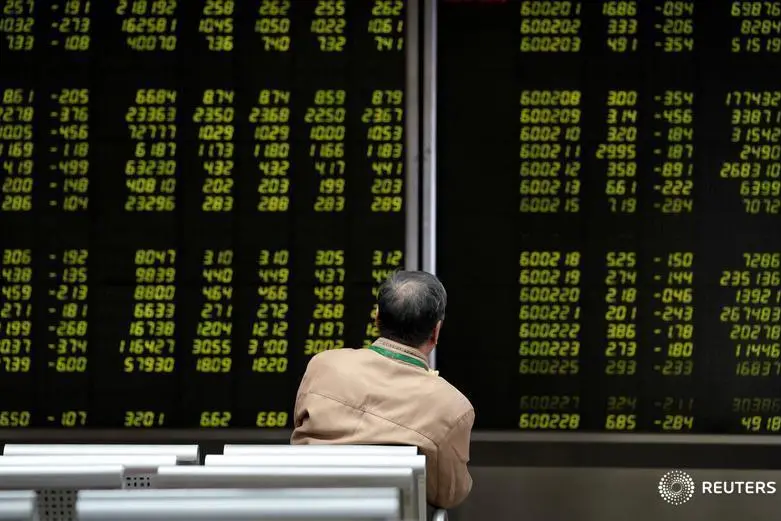PHOTO
The Thai baht led losses for Asian currencies on Tuesday as U.S. Treasury yields jumped and the dollar held firm after hawkish remarks from a U.S. Federal Reserve Governor, while Chinese stocks bounced on fresh policy support measures.
Stocks in China gained 1.2% after its cabinet unveiled policies, including the acceleration of local government special bond issuance and cash support for firms that hire college graduates.
MSCI's broadest index of Asia-Pacific shares outside Japan added 0.7%, reversing losses from earlier in the session and led by gains in China and Hong Kong.
Investor reaction to China's stimulus measures announced on Monday was short-lived, outweighed by Fed Governor Christopher Waller's call for a half percentage point hike in interest rates until inflation is decisively curbed.
Waller's remarks came ahead of Fed Chairman Jerome Powell's meeting with the President Joe Biden later in the day to discuss the state of the economy.
U.S. Treasury yields rose sharply to a one-week high as trading resumed after a U.S. holiday. With the greenback firm, Asian currencies lost ground. The baht declined as much as 0.5% and was the top underperformer in the region.
Poon Panichpibool, a markets strategist with Krung Thai Bank, said that the movement in the baht was due to factors like a firm dollar and some profit-taking from players who shorted the dollar-Thai baht pair earlier.
The rupiah, Singapore's dollar and Philippine peso dropped 0.2% each, while Malaysia's ringgit was down 0.3%.
In equity markets, Jakarta shares led with a 1% gain, followed by stocks in Singapore and South Korea , up 0.6% each. In contrast, Philippine shares dropped 0.7%.
Amid a relatively light economic calendar in Asia for the week, investors were in wait-and-see mode. In India, the focus was on GDP data expected later in the day.
India's economy likely grew at its slowest pace in a year in the first quarter due to Omicron-related restrictions and rapid inflation, a Reuters poll last week showed.
The rupee was down 0.2% while Indian stocks dropped 0.1%. India's benchmark 10-year bond yield touched a three-week high in early trade on Tuesday, as global crude oil prices rose further raising concerns over the need for the central bank to tighten monetary policy aggressively to contain inflation.
HIGHLIGHTS:
** Indonesia on Monday said it would grant some of the requests for palm oil export permits following the lifting of a ban a week ago, signalling a calibrated resumption of shipments amid protracted delays
** Indonesia's biggest tech company PT GoTo Gojek Tokopedia Tbk posted a 22.43 trillion rupiah net loss last year, according to the firm's 2021 annual report filed to the stock exchange on Monday
** South Korean shares rose to their highest in five weeks, the won hit a near six-week high, while the benchmark bond yield jumped Asia stock indexes and currencies at 0728 GMT
(Reporting by Savyata Mishra in Bengaluru; Editing by Shailesh Kuber)




















